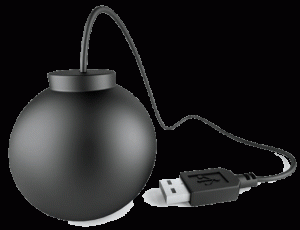 Strong words–love and hate. Those are the words consumers use to describe brand experiences. My personal affinity for Quicken goes back more than two decades. I was such an early user of Quicken that the software couldn’t handle the amount of financial data I loaded on there.
Strong words–love and hate. Those are the words consumers use to describe brand experiences. My personal affinity for Quicken goes back more than two decades. I was such an early user of Quicken that the software couldn’t handle the amount of financial data I loaded on there.
In those days, Quicken was barely out of shareware status, and tech support insisted that every year be archived as its own file. That sounded okay to me, except that you couldn’t report across multiple files. I analyze web metrics as a big part of my life now. Do you really think a version of me a generation ago was going to give up access to reporting across years?
But we spent a lot of time on the phone, and I think my efforts helped them build a better product. In the early days, Scott Cook’s company provided outstanding customer service. I was in that field then, and they weren’t simply good–they were best of breed. As the company grew, Quicken and QuickBooks became leaders in their segment.
On their march to multi-billion dollar revenue streams, Intuit introduced big B2B concepts to their smaller business and consumer markets. They rolled out “sunsetting”, a time when your software would no longer work regardless of whether it still met your needs. They also insisted on product activation because as Cook noted there were many more tax returns prepared using TurboTax than units sold. I’ve admired Intuit and faithfully bought their products for years. My lifetime value was astronomical and the word of mouth sales I generated was even higher. Now the Quicken home line has introduced something so anti-consumer that the concept is mind-boggling.
Remember that I had years of data stored on a top of the line Quicken release. Then I began substituting services like Mint.com (also owned by Intuit) for Quicken until I finally stopped using the product. A need for some tax-related information sent me scrambling for the data file and then to Staples for a new copy of Quicken. I no longer needed the top-of-the-line product, but the software and the customer service group insisted that I must upgrade to access my data file. There was no downward compatibility. There were no options. Access to data you created in their best product means you were locked into that product for the future.
I can’t begin to tell you how poor that strategy is for a casual consumer market. Brand loyal, I ran out to a Staples and purchased a $30 product to gather two facts. Then I had to pay another $70 to upgrade my product. My lesson learned? Remember how I wouldn’t archive the files when they first started? This weekend’s plan is to do so, but in a format that can be read by other programs. Because as good as Quicken is and as brand loyal as I was, I felt Intuit abused our relationship. They got an extra $100 in revenue this year, but the Quicken line has lost my business forever.
Your takeaway as a small business leader is that the lessons you learn in one line of business do not always translate to other segments. I’ve often joked that a person will go to work and push around paper representing thousands of dollars of value if not more. They’ll be agreeable, hold things for extra processing time or may even be delayed in their work with an overflowing inbox. That same person will come home and spend 20 minutes arguing a $10 overcharge on the phone. That’s the mindset between business and consumer segments, a lesson Intuit missed applying.